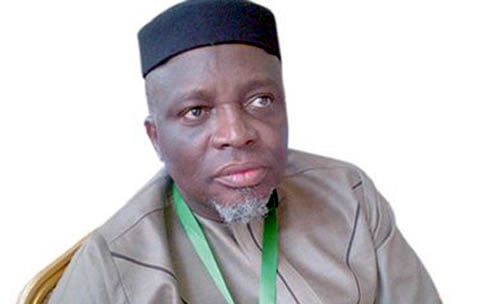The Joint Admissions and Matriculation Board (JAMB) has explained why it has been remitting its operating surpluses to the public treasury.
The Board insisted that its remittances are in line with global best practices, and would continue its practice of remitting the constitutionally-mandated proportion of its operational surpluses.
JAMD recently remitted N3.51 billion operating surpluses to the public treasury.
This action has received condemnation from some critics.
However, JAMB’s Head of Public Affairs, Dr. Fabian Benjamin, stated that all unutilised funds by Ministries, Departments and Agencies (MDAs) should be returned to the public treasury.
Benjamin stated that the Board and public-spirited Nigerians are at a loss as to the reason for the various campaigns of calumny being mounted by some individuals who feel that these remittances should not be made.
He said: “The Board reiterates that it is not within the powers of MDAs to determine the uses for which the remitted funds are put to. Theirs is to comply with extant directive while those given the mandate to manage the national treasury have the responsibility of appropriating and channelling such remittances, in the overall interest of the public, to identified areas of need or rather whichever area of the national economy that they perceive to be in most need of resources.
“Perhaps, it is the novelty of such remittances that is jolting the Board’s critics from their complacency. It would be recalled that the humongous remittances are the first in the history of the four-decade-old agency.
“The first landmark remittance was made in 2017 and the feat was repeated in subsequent years in line with its belief that rules are made to be obeyed and, at any rate, the Board does not believe it should hold onto money that does not belong to it.
“It might interest these armchair critics that a direct fallout of the remittances was the decision of the Federal Government to reduce the cost of the purchase of the e-pin from N5,000 to N3,500, the cheapest globally.”
The Board also explained the reduction in the price of application documents.
According to its spokesman, “The decision to reduce the price of application documents was contingent upon the observation that even if the price were to be slashed, the Board would be able to conduct its examination unhindered.
“In addition, it might also interest the public to know that never in the history of tertiary institutions in Nigeria have the institutions benefited from the Board’s operations as they now do. For instance, a huge chunk of these surpluses are ploughed back to the tertiary institutions through the National Tertiary Admissions Performance Merit Award and other platforms.
“Furthermore, many critical segments of the society, the intellectual community, the civil society groups, among others, have all been included in the management of the Board operational processes not only to add value to its service delivery but also to make for inclusiveness. All these, which were hitherto impossible, had been made possible as a result of the prudent management of resources which has enabled the Board to prosecute these aspirations.”
Benjamin stated that the cost of obtaining the Unified Tertiary Matriculation Examination (UTME) or the Direct Entry (DE) e-pin today is the lowest globally.
“This comparison is not even with developed countries but rather with countries with less per capital income than Nigeria.
“The ridiculously low cost of obtaining the Board’s application documents would be manifest if a comparison is made with similar examinations like IELTS where Nigerians pay as high as N80,000 to sit.
“However, the present management of the Board is determined to continue on the path of giving value for money even as it continues to seek ways of further pruning down the cost of conducting the Board’s flagship examination.
“In essence, once these innovative measures which have led to these surpluses are institutionalised, the Board would further look at how to further enhance the registration process to benefit the candidates and the general public the more.”
- Court halts Nigeria Air’s take-off as Airline Operators sue FG - November 15, 2022
- Bizmen slam N407.8m suit on Union Bank - July 1, 2022
- N25.7bn fraud: Appeal Court affirms Atuche, Anyanwu’s conviction - June 23, 2022










